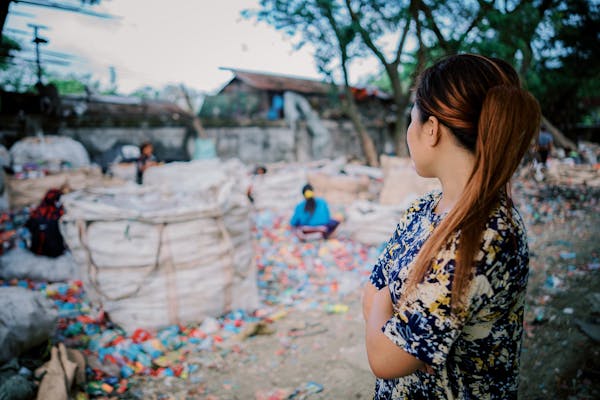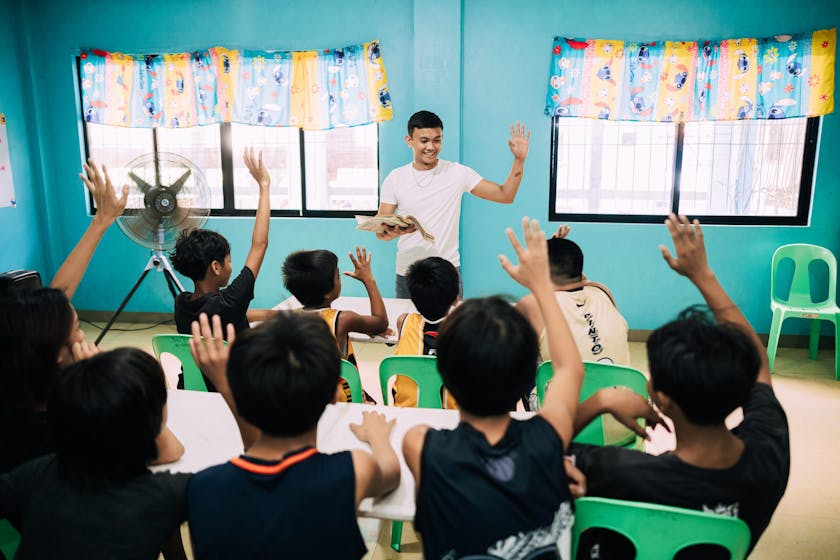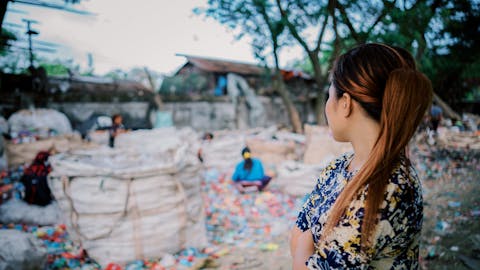Strengthening the Community-based Protection Systems to Eliminate Worst Forms of Child Labour (WFCL) in Visayas Region

To combat WFCL, Terre des Hommes Netherlands, in partnership with Bidlisiw Foundation and Children’s Legal Bureau, and with funding support from the European Union, is implementing the project Strengthening the Community-based Protection Systems to eliminate Worst Forms of Child Labour (WFCL) in Visayas Region.

Worst Forms of Child Labour (WFCL) is a serious issue in the Philippines
Worst Forms of Child Labour (WFCL) remain a serious issue in the Philippines, driven by poverty, limited job and education opportunities, social norms, and weak law enforcement. Many victims don’t report abuse due to fear, stigma, or distrust in the justice system. We build knowledge and capacity of stakeholders, ensure support services to survivors, and advocate for programmes and policies to effectively combat child labour.
Stories and Updates
-

Joe-Anna Abelinde
Programme ManagerNo child should trade dreams for survival, and every day lost is a future stolen. Yet over a million in the Philippines endure the worst forms of labour. Together with local partners and communities, we dismantle harmful norms, build local protection capacity, and break cycles of poverty, so every child grows up safe, educated, and free to shape their future
Background
The Philippines is also a global hotspot for online child sexual exploitation, driven by greater internet access. Weak local monitoring and response systems, coupled with limited technical capacity among civil society and community-based organisations, hinder effective intervention. These gaps underscore the need for stronger local mechanisms, better legislative understanding, and private sector engagement to combat WFCL across the country.
Goals
To eliminate worst forms of child labour (WFCL) in Visayas Region using a multi-stakeholder approach to enhance the level of protection provided to victims and at-risk children and strengthen the response of regional and local institutions.
Our Approach
The WFCL project is implemented in Iloilo City and Negros Oriental in the Philippines.
Awareness Raising
Capacity Building
Partnership Building
Establishing and strengthening existing partnerships with government agencies , barangays (villages), Local Government Units (LGUs), and private establishments
Demanding Accountability from Private Sector and Government Agencies
Training of local Civil Society Organisations (CSOs) and Community Watch Groups (CWGs) to demand transparency and accountability from their local companies and supporting government agencies, and monitor their conformity to child labour laws.
Policy Advocacy
Direct Service Delivery

Our Results
-
Awareness initiatives reached 1,063 adults (252 males, 805 females, 6 diverse Sexual Orientation, Gender Identity and Expression, and Sex Characteristics [SOGIESC]) and 225 children (79 boys, 135 girls, 11 diverse SOGIESC).
-
20 of 26 identified children were withdrawn from WFCL; 24 enrolled in formal education.
-
Executive Order 60 established the Iloilo City Council Against Child Labor (ICCACL).
-
53 new Community Watch Group members trained, totaling 105, enhancing reporting and referral with BCPCs.
-
12 partner Local Government Units (LGUs) and agencies developed programs and budgets targeting WFCL.
-
28 private sector groups in Iloilo City drafted ‘Dos and Don’ts’ as the basis for child protection policies.
Our Partners
Implementing Partners
Funding partners
European Union
The European Union (EU) is a unique political and economic union of 27 European countries. It aims to promote peace, free trade, and shared policies.





